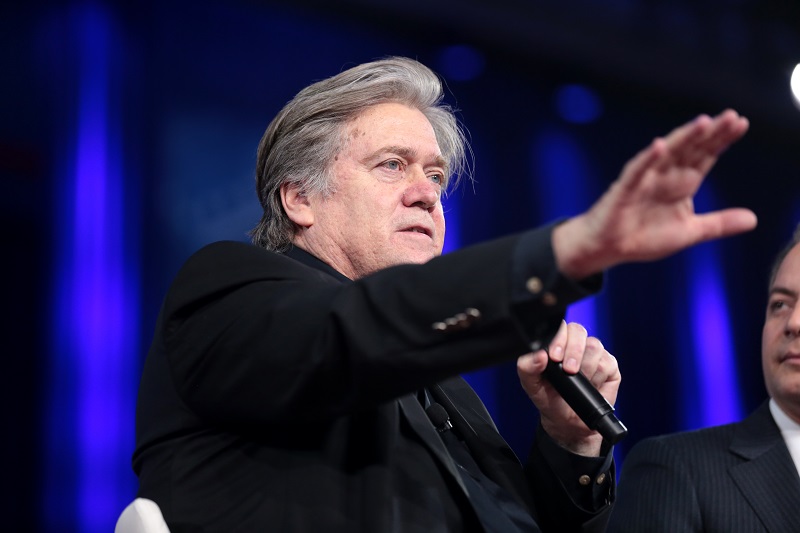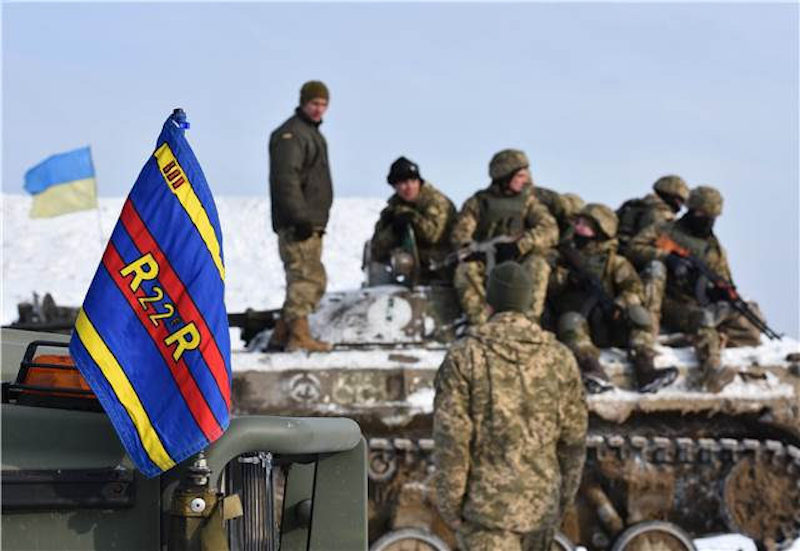This is the third part of an ongoing, occasional series on the alt-right in power. See Part 2 for Steve Bannon’s thoughts on the enemies of the West.
With all these issues brewing as a result of globalization, the white American middle class is being let down by elites in the “party of Davos”, whose allegiances are to fellow financiers and transnational capitalists in world-class metropolitan cities rather than to their rural countrymen. As such, it is not surprising that Bannon famously denounced the New York Times and mainstream media as “the opposition party.” They are complicit in the erosion of domestic American interests, by virtue of being out of touch with the masses. As Bannon said, “They don’t understand this country. They still do not understand why Donald Trump is the president of the United States.” Instead, “The media should be embarrassed and humiliated and keep its mouth shut and just listen for a while.”
Against these corrosive forces, Bannon advocates for a reconstruction of a white America guided by Christian values. In his Vatican speech, Bannon called on the resuscitation, and subsequent defence, of “Judeo-Christian values” through “[binding] together and really form what I feel is an aspect of the church militant”, one which will “fight for our beliefs against this new barbarity that’s starting”. These values are best expressed through local self-governance, since “the working men and women of Europe and Asia and the United States and Latin America … believe they know what’s best for how they will comport their lives.” Further on in Bannon’s speech, he explains that these values may include “hard-nosed” capitalism (as opposed to state or crony capitalism), traditional marriage, anti-abortion, and, of course, a reassertion of Westphalian sovereignty. It would be best for all the countries of the world to be run by independent nationalists, because “strong countries and strong nationalist movements in countries make strong neighbors.” As a political analyst noted, Bannon sees supranational organizations like the European Union as “a body that dilutes national identity and whose border policies allow Islam to invade the West.”
Paradoxically, although Bannon advocates for national sovereignty and nationalism, he finds ready allies and inspiration from abroad. European far-right nationalists like Marine Le Pen, Geert Wilders, and Nigel Farage have all been supported by Breitbart as fellow anti-EU actors. While Bannon repudiates Putin’s kleptocracy and expansionism, he finds Putin’s message of a traditionalist revival an admirable notion that spoke to his belief that “individual sovereignty of a country is a good thing and a strong thing.” Along with Bannon’s admiration for Russian reactionary thinker Aleksandr Dugin, much of Bannon’s religious rhetoric coincides with the rise of Russian Orthodox ultra-conservatism, which he sees as a religious ally. Bannon’s geopolitical culture war envelops the Vatican as well, having forged alliances with the Catholic Church’s traditionalist clerics in opposition to Pope Francis’s relatively liberal theology. Conversely, European nationalists like pro-Russian politicians in Montenegro have tried to appeal to Bannon to help undermine Western organizations like NATO, a move indicative of Bannon’s influence on transnational nationalism.
In order to achieve all of these lofty goals, Bannon believes he needs to transform America, with himself as “Thomas Cromwell in the court of the Tudors.” Cromwell was Henry VIII’s grey eminence who spearheaded crushing the Catholic Church’s political power in England during the English Reformation (ironically, Bannon is Catholic). In an August 2016 interview with The Daily Beast, Bannon infamously declared himself to be “a Leninist”, arguing that “Lenin wanted to destroy the state, and that’s my goal too. I want to bring everything crashing down, and destroy all of today’s establishment.”
The would-be Cromwell searched a liege to serve. Initially politically courting a number of Tea Party Republicans such as Sarah Palin and Michelle Bachman as possible earthquakes in the political system, Bannon latched onto Trump around August 2015, when he ordered Breitbart to produce Trump-friendly content and began coaching Trump himself to hone in on his message about “the forgotten men and women of our country.” However, Bannon was quite open to the media about his antipathy towards Trump himself, calling his mentee an “imperfect vessel” or a “blunt instrument for us”, even questioning “whether he gets it or not.”
And on November 9, 2016, Bannon was propelled to the highest levels of power as Trump won the presidential election by the skin of his teeth. A few days later, Trump appointed Bannon to his cabinet as his Chief Strategist, among his first appointments as President-Elect. This was Bannon’s opportunity to be the court vizier.
To be continued in Part 4 of this series, on Bannon’s dramatic first months as President Trump’s Chief Strategist.
Photo: Chief White House Strategist Steve Bannon speaking at the 2017 Conservative Political Action Conference (CPAC) in National Harbor, Maryland (2017), by Gage Skidmore via Wikimedia Commons. Licensed under CC BY-SA 2.0.
Disclaimer: Any views or opinions expressed in articles are solely those of the authors and do not necessarily represent the views of the NATO Association of Canada.




